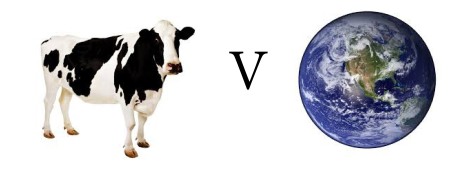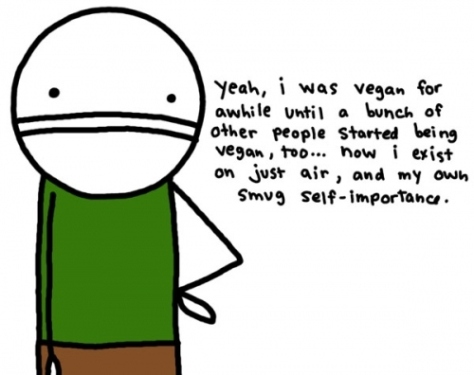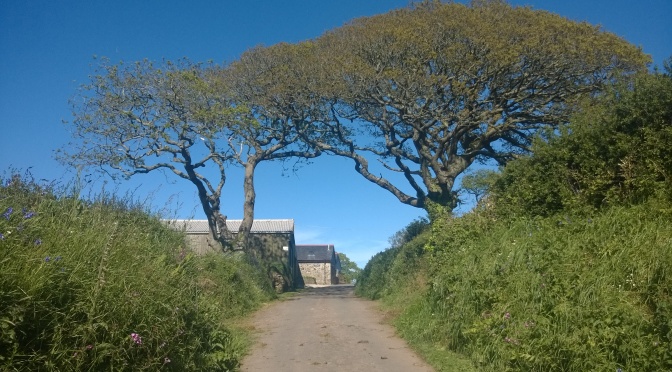When, about a month ago, the wonderful Zero Waste Millennial posted a blog titled “Is it possible to be Vegan and Zero waste?” and began it with the immediate answer “no”, it got me thinking. I have wondered myself if it’s possible to champion animal rights, human rights, environmental issues (which in itself is a huge subject…) and live as happily and healthily as possible; whilst still having fun and enjoying the pleasures in life!
But what happens when contradictions in our ethics occur? What if the vegan option isn’t organic but the meat option is? Or the products which avoid exploitation of humans are not sustainable or chemical free? Or your beautiful, naturally sourced fabric from a fair trade cotton producer in India incurred an incredibly large carbon footprint? Surely something has to give?
Veganism Vs Sustainability?
This is something I have struggled with before; when I think about Veganism Vs Sustainability. Generally, a huge reason for being vegan stems from the belief that it is healthy, sustainable (for planet and human consumption) and it lets me live by the strong beliefs I have for animal rights. Production of meat, eggs and dairy contribute to some of the largest waste of world water, land, crops and – of course – life. It is considered one of the healthiest diets and can help prevent many common illnesses; not to mention encouraging you to be more aware of your nutrition and where your food comes from. It also recognises that the large majority of animal products do not come from lush green meadows of happy animals – as depicted in adverts and on packaging – but from dark, industrial and inhumane production lines.

However, Zero Waste Millennial was right; not everything vegan is zero waste and 100% sustainable. As more synthetic materials replace traditionally animal sourced items, and production of alternative products have direct impact on the planet and its inhabitants; some point down the chain of many vegan products an action may well harm another living being. But then, isn’t that the case with almost all life on earth one way or another?
Veganism is about refraining from direct and intentional harm to sentient non-humans; and using the power of the purse to invest in alternative products. We acknowledge that there are always indirect and unintentional harms, but Veganism is about doing something that can be easily incorporated into everyday life. It can – and does – help to minimise that harm. It’s not about saying “hey, look at me, I’m perfect and I judge you for not doing as well as me…” it’s about a personal choice to do something which puts our values, belief and ethics into physical action in a practical way.

Choose your ethical battles
We all know in life you have to choose your battles; and choosing which ethical values to follow are no different. I always say, you can’t be 100% green unless you have your own piece of land in which you grow your own food, build your own (very basic) home and live like a hobbit in the woods. This is obviously very dramatic, and more than a bit pedantic. But the truth is that humans by nature make their mark on the planet every single day; and all we can really do is minimise our negative impact as much as possible. There will always be knock on effects of living life, and who are we to judge the ways people try to reduce the bad effects; as long as we are all trying in some way?
This is why my response to “Is it possible to be Vegan and Zero waste?” was to honestly admit:
“As a vegan I believe that there are many ways around it. While the eating veg instead of meat bit is a key part of veganism – the way I work around the consumer aspect is to basically to buy less! I largely make do with what I have, borrow, share and make things myself where possible. As any other person concerned with the environment I try to do my research and make the best decision I can. I’m not saying that animals are more important than the planet, I just know I can (with a little research and hard work) balance the two as best I can to live by my beliefs! :)”
What do you think? I would love to hear your thoughts on how you balance your own ethics and if you have encountered any either/or scenarios which has tested your green living journey!


Excellent blog post. It’s nice to see somebody speaking about veganism, beyond just diet. We’re always labeling others to connect with like-minds, but we also do so to criticize and justify our own ideologies. We believe that a vegan/green/sustainable/etc. lifestyle is defined by the person doing the labeling. To some, we are vegan and others we are not (we provide for a carnivore).
We choose to define our lifestyles by the process they are. Investing time and energy into riding bikes instead of driving cars, and purchasing plant-based foods instead of animal are steps that we have taken to contribute to society and the planet. It seems impossible to have everything in our lives be %100 vegan/green/sustainable, but that’s only because of where we are at in the process. I know that I personally could never have imagined not eat meat.
So, to find peace of mind for the reality of our imperfection, we find sustainability to be a lifestyle of patience and progress that expands our awareness for the well-being of all species.
Thanks for inspiring thought. ☮
LikeLike
Thanks for your positive comment! I have a few other “controversial” thoughts regarding veganism vs green living and it is something I am constantly learning and trying to explore. I agree that all you can do is strive and learn and grow, with the eventual aim for living as green and compassionate as you can. No one kind of lifestyle if perfect, its about doing the best you can with what you have 🙂
LikeLiked by 1 person
Trudi, I love this post thank you! I’d be really interested to hear more on this topic (I know I’ve mentioned it to you before), as I’ve heard lots of controversial things about products like Soy and Quinoa (i.e air miles, taking people’s crops etc). Are there alternatives like these that we can get in the UK? xxx
LikeLike
Oh yes, I’ll share some of my discoveries for sure – including how to make your own nut milks at home!! Xx
LikeLiked by 1 person
Thanks so much for your comment. Some interesting topics there, i love a good research session so keep an eye out for posts on these soon 🙂 xx
LikeLike
Hey Trudi – loved this piece so much!
I wonder about these questions a lot. I’m currently a vegetarian who only eats animals products (ie, dairy, honey) when I believe that they’ve been ethically and/or locally sourced, but actually eats vegan around 75% of the time.
I’m planning on going vegan in January and a lot of my reasons behind doing this are to make sure that I do some more research and the beneficial impacts of veganism and how they compare to vegetarians, and also looking at how sustainable it is while travelling.
Most often my main concern is with how mass production and mass consumption of food products are damaging the environment, are detrimental to local communities trying to earn a living, and of course mean hideous lives for the animals involved.
Avoiding those things is hard work (more so when travelling than when living at home in the UK) but it’s also not something anyone should ever give up on. I think on it a lot whether it’s enough to be a vegetarian who consumes animals products in the way I do currently, or whether making the final move to veganism is an important move in underlining these beliefs.
As you say though, there are some questions still about how not everything that is vegan is zero waste or sustainable — and that’s the part that I really want to be avoiding as much as is possible. Lots of food for thought.
LikeLike